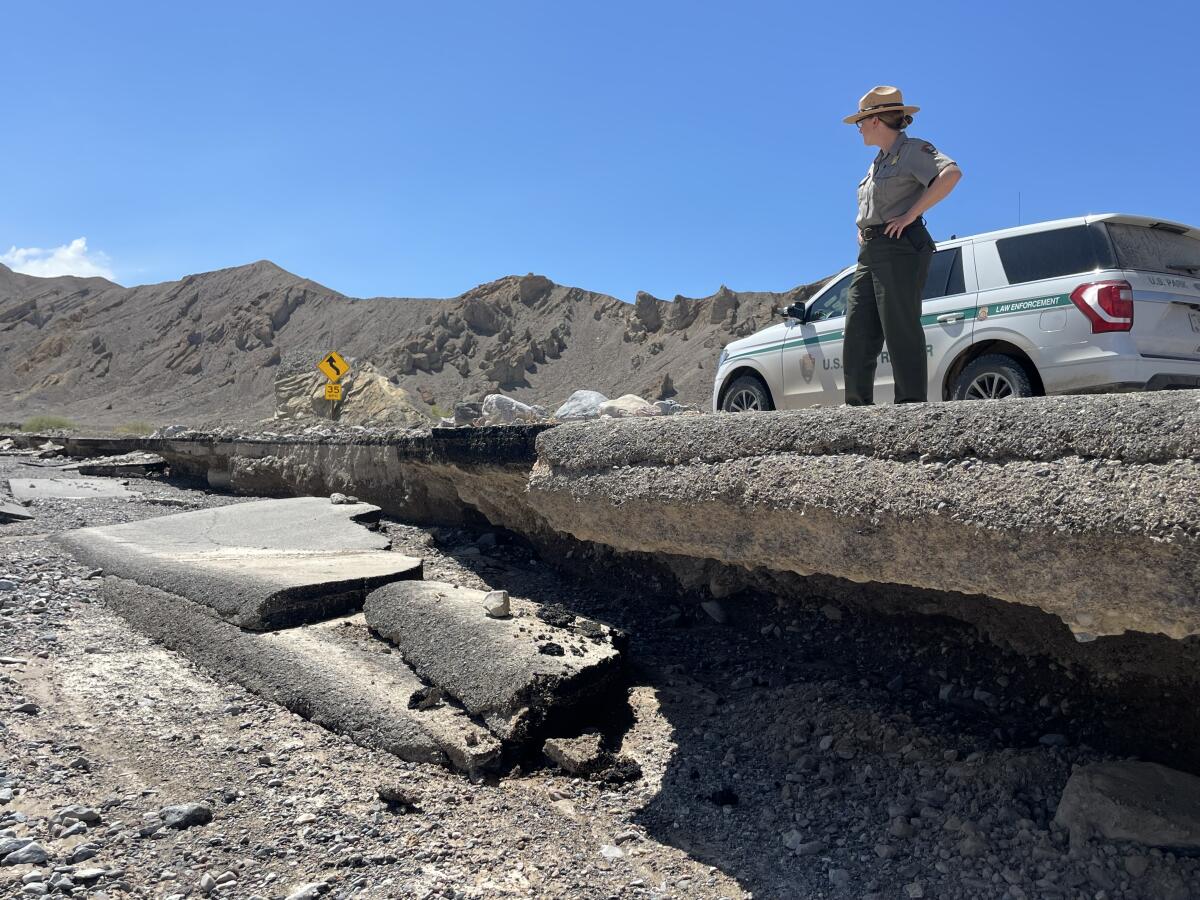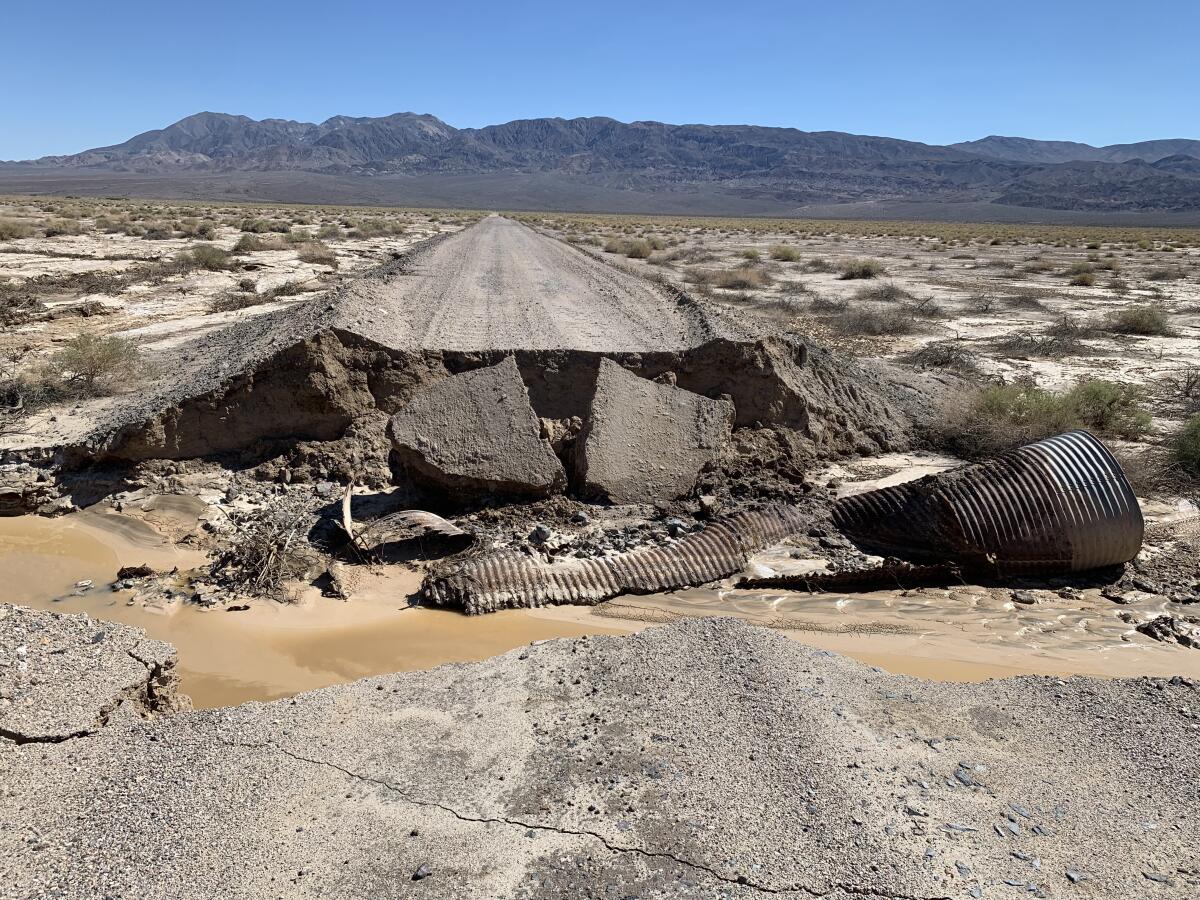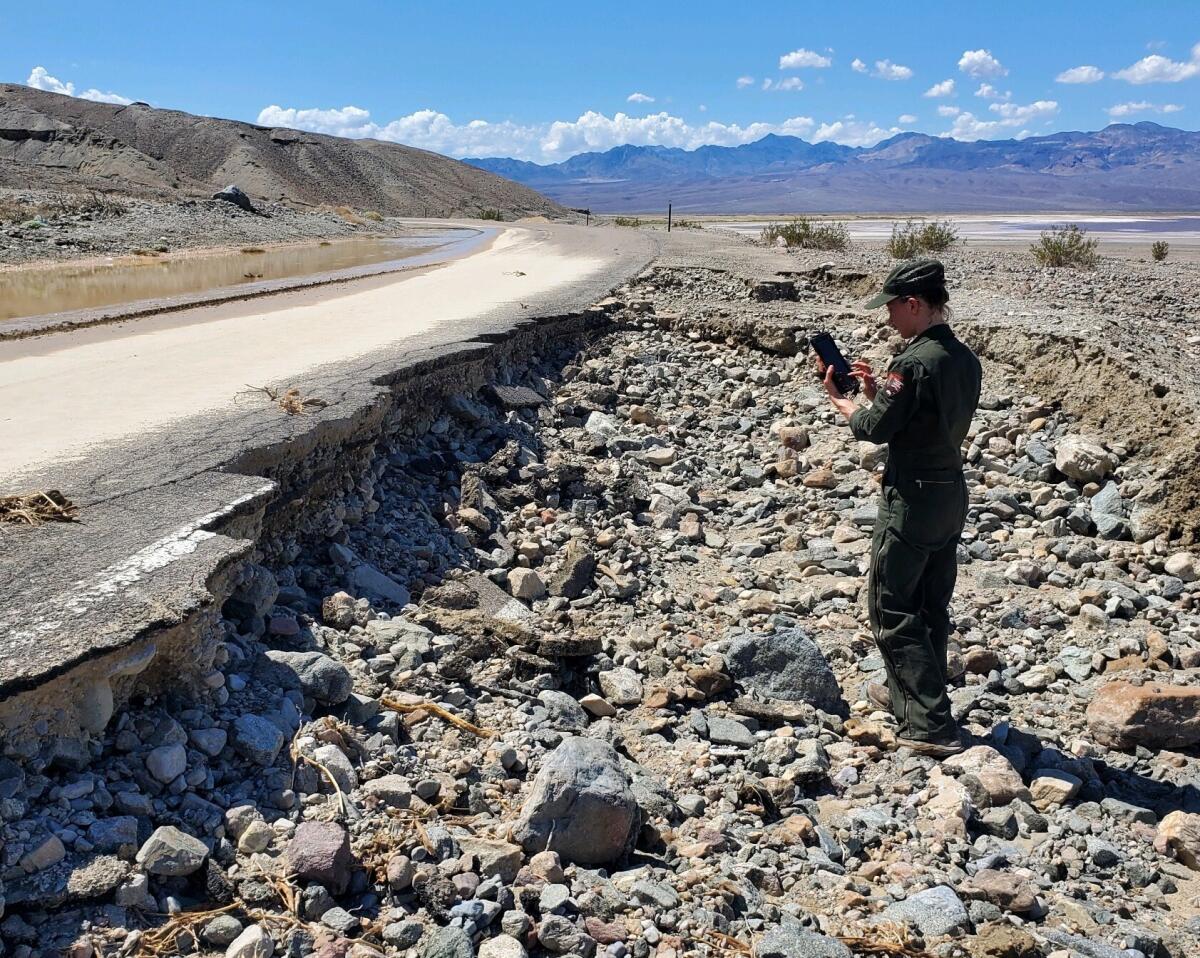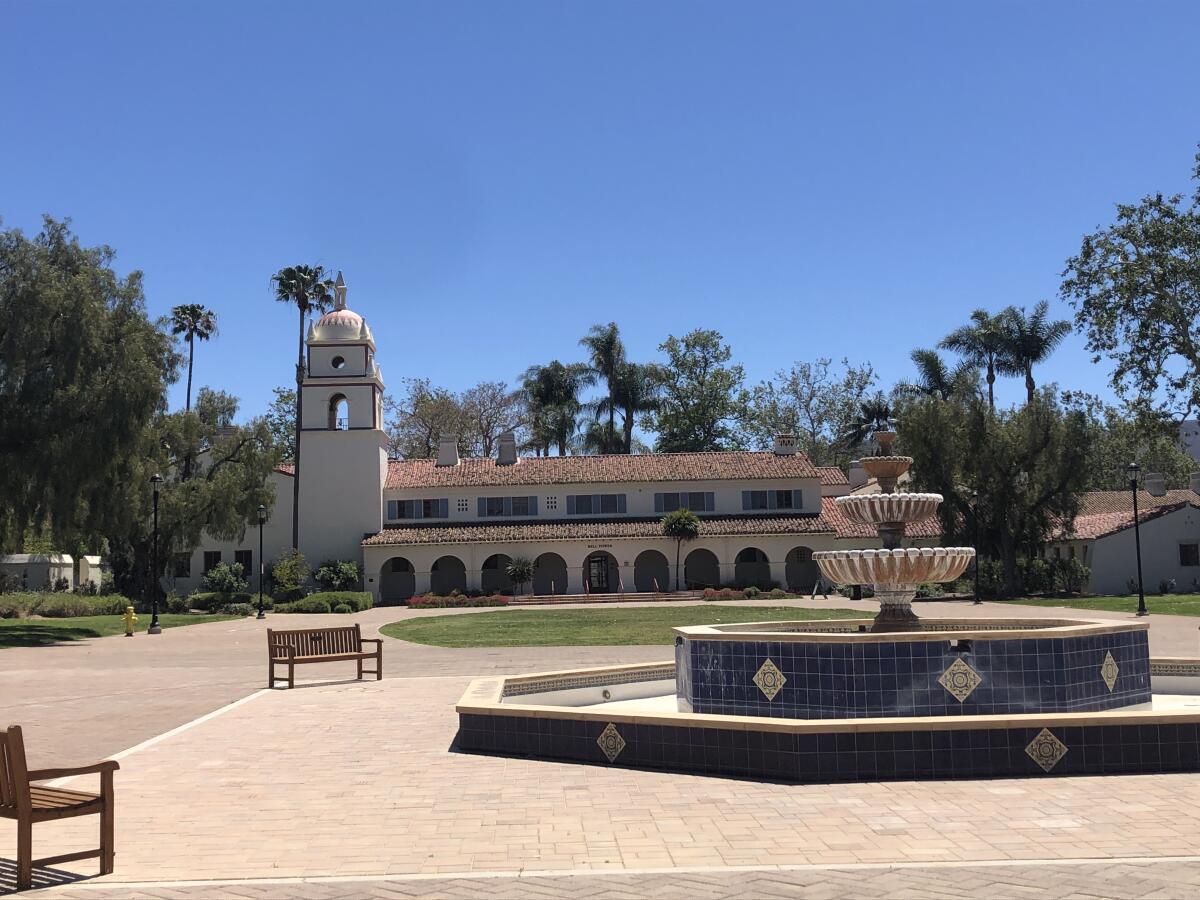How Hilary’s visit to Death Valley National Park reshaped the desert landscape

Editors’ note: Get excited! A new and improved Essential California will land in your inbox Thursday morning, bringing you more news, features and things to do in a sleeker, more digestible presentation. Ryan will still be here to guide you through the biggest news of the day.
Good morning, and welcome to the Essential California newsletter. It’s Tuesday, Sept. 5.
For the record:
3:08 p.m. Sept. 5, 2023A previous version of this newsletter stated nearly a week had passed since Tropical Storm Hilary hit California. In fact, more than two weeks passed between the storm and this newsletter publishing.
Just over two weeks after Tropical Storm Hilary spun through California, officials are still trying to assess the full damage, especially in the eastern part of the state.
That’s playing out in Death Valley National Park. In one day, the storm dumped more water on the region than it typically receives in a year. Two inches of rain may not sound like a lot, but in this dry and rocky landscape, it can have an outsized impact.
Park ranger Matthew Lamar explained it to Times reporter Hayley Smith:
“We have these hard, rocky areas — there’s nothing to absorb that water, and so it comes off the mountains, into the canyons and through the washes and drainages and up into the infrastructure. Two inches of rain here can have a dramatic impact.”
Because of the considerable damage to roads and culverts, the park has been closed. That includes campgrounds, visitor centers and hotels. Officials said they plan to reopen the park in stages, noting that it could be months before the park is fully accessible to the public again.
A landscape shaped by water
Officials told Hayley that some scorpions and lizards didn’t survive the flooding, but endangered pupfish appeared to make it through.
Then there are the Bristlecone pines — some of the oldest known trees on Earth. The roadways up to the ancient forest are blocked by debris, so officials don’t yet know whether they survived the rain, wind and erosion.
Water plays a vital role in the desert’s past, present and future. Some of the same natural features that visitors drive out to see — such as desert canyons and alluvial fans — were formed during flood events, National Park Service officials wrote online.
A future of extreme weather
Ancient floods didn’t have any man-made infrastructure to destroy. Now, you can’t drive across the park. Floodwaters covered some roads in feet of mud and washed away segments of others entirely.

NPS officials told Haley that they’ll probably need to reinforce infrastructure as they build it back to help protect it against extreme weather events that they expect to intensify.
“Climate models do seem to indicate that we will see more intense storms along with the higher temperatures,” Lamar told Hayley. “No one storm proves climate change, but when it keeps on happening, it does develop a trend.”

And now, here’s what’s happening across California:
Note: Some of the sites we link to may limit the number of stories you can access without subscribing.
L.A. STORIES
Beyoncé brought her Renaissance tour to Inglewood, performing three nights at SoFi Stadium over the weekend. Her fans really shined before the show, decked out in silver and chrome. Take in all their joy and chrome in these Times photos. Los Angeles Times
Public buses are “a lifeline” for many older Korean immigrants, my colleague Jeong Park wrote this week. But elderly members of the community must contend with a lack of shade at many bus stops, even as heat waves become more intense. Los Angeles Times
POLITICS AND GOVERNMENT
A new limited DMV pilot program allows state residents to scan their license and create a digital version on their phones. But don’t toss your wallets just yet — you’ll still need your physical license to show law enforcement, state government agencies and many businesses. Los Angeles Times
When exactly does a dog’s barking go from an annoyance to an official noise violation? The city of Laguna Beach — which takes tranquility very seriously — has outlined some specifics for canine cacophony. Los Angeles Times
CRIME, COURTS AND POLICING
Dodgers pitcher Julio Urías was arrested Sunday night and charged with felony domestic violence, according to police at Exposition Park. The incident is believed to have happened at BMO Stadium, where LAFC faced Inter Miami. The Dodgers announced they will investigate the incident and said Urías won’t be traveling with the team in the meantime. Los Angeles Times
L.A. County is suing two pharmacy benefit firms, alleging they helped fuel the opioid crisis. The lawsuit accuses Express Scripts Inc. and OptumRx Inc. — obscure middlemen of the prescription drug industry — of colluding with drug manufacturers to promote dangerously addictive painkillers, driven by lucrative profits. Los Angeles Times
Support our journalism
HEALTH AND THE ENVIRONMENT
Climate change has boosted California’s risk of explosive wildfire growth by 25%, according to a study from the Berkeley-based Breakthrough Institute. Researchers analyzed nearly 18,000 fires that burned in the state between 2003 and 2020, using artificial intelligence learning to explore the relationship between temperature and extreme fire growth. Los Angeles Times
The demolition process has begun on four aging hydroelectric dams along the Klamath River. It’s the culmination of decades of work by Indigenous tribes and conservationists to restore the long-troubled waterway, but there’s a lot of uncertainy about how — and whether — the river will bounce back. CalMatters
Free online games
Get our free daily crossword puzzle, sudoku, word search and arcade games in our new game center at latimes.com/games.
AND FINALLY
Today’s California landmark is from Emily Gaston of Ventura: the California State University Channel Islands campus, “nestled between the agricultural fields of the Oxnard Basin and the Santa Monica Mountains.”

Emily writes:
Though its quintessential Spanish architecture is shadowed by its history as a mental health institution, its revival into a modern college brings new life to this storied campus. Tucked away into its many courtyards, one can hear the iconic bell tower ring and see hawks soaring above this uniquely Californian landscape.
What are California’s essential landmarks? Fill out this form to send us your photos of a special spot in California — natural or human-made. Tell us why it’s interesting and what makes it a symbol of life in the Golden State. Please be sure to include only photos taken directly by you. Your submission could be featured in a future edition of the newsletter.
Please let us know what we can do to make this newsletter more useful to you. Send comments to essentialcalifornia@latimes.com.
Sign up for Essential California
The most important California stories and recommendations in your inbox every morning.
You may occasionally receive promotional content from the Los Angeles Times.




